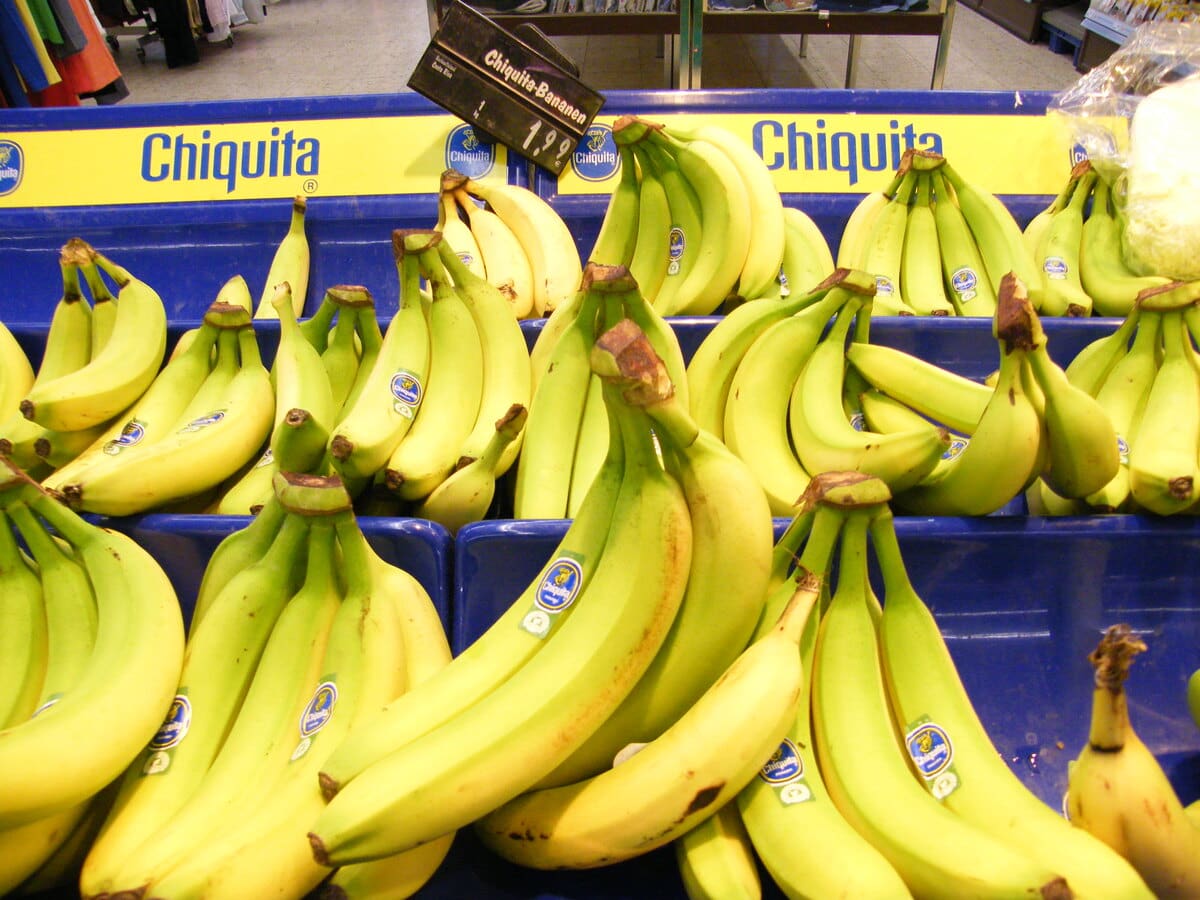What is it with American fruit companies?
Chiquita’s bloody history in bananas
While it is a momentous victory for these families, the case also lays bare the uphill battle for human rights against imperial capitalism.
For one, not only did this fight take 17 years, but hundreds more families are still awaiting justice. Predictably, over the course of the litigation, it has sought to evade accountability.
What’s more, the case illustrates how corporations change their faces, but not their violent, colonial core.
Specifically, Chiquita is the rebrand of United Fruit Company (UFVo). Notoriously, this is the corporation that conspired with then US president Eisenhower and the CIA to instigate a violent coup in Guatemala.
Notably, in 1952, democratically elected Guatemalan president Jacobo Arbenz passed a decree to claw back land from large land owners. In particular, he planned to divide this up between Guatemala’s landless citizens. Naturally, this would eat into many acres of UFCo’s landholdings – and as a result, its major profits.
However, US secretary of state John Foster Dulles and CIA director Allen Dulles organised an armed overthrow of Arbenz’s government. The US installed Guatemalan colonel Carlos Castillo as its new president. Unsurprisingly, the Dulles brothers had vested interests in UFCo, as former partners to the company’s main law firm. Following this, as Juan Gonzalez described in ‘Harvest of Empire’:
Despite the violent and illegal manner by which Castillo’s government came to power, Washington promptly recognized it and showered it with foreign aid. Castillo lost no time in repaying his sponsors. He quickly outlawed more than five hundred trade unions and returned more than 1.5 million acres to United Fruit and the country’s other big landowners. Guatemala’s brief experiment with democracy was over. For the next four decades, its people suffered from government terror without equal in the modern history of Latin America.
In other words, this is the colonial history in which Chiquita has its roots.
We acknowledged that your company has paid to murder people, so here is a small (compared to the profits) fine.
HAVE A GREAT DAY!

BUT ALSO

This part is good:
“If the penalty for breaking a law is a fine…”
I’d update the text of the second sentence:
“…then the fine is just the cost of doing business.”
To me the meaning is essentially the same, though I see the distinction you are making.
I guess I’ll have an apple instead… 🤷♂️
So… 10,000yrs later, a jury finds horrible crimes culpable?
Oh NO…!
This shit is bananas!
B-A-N-A-N-A-S





